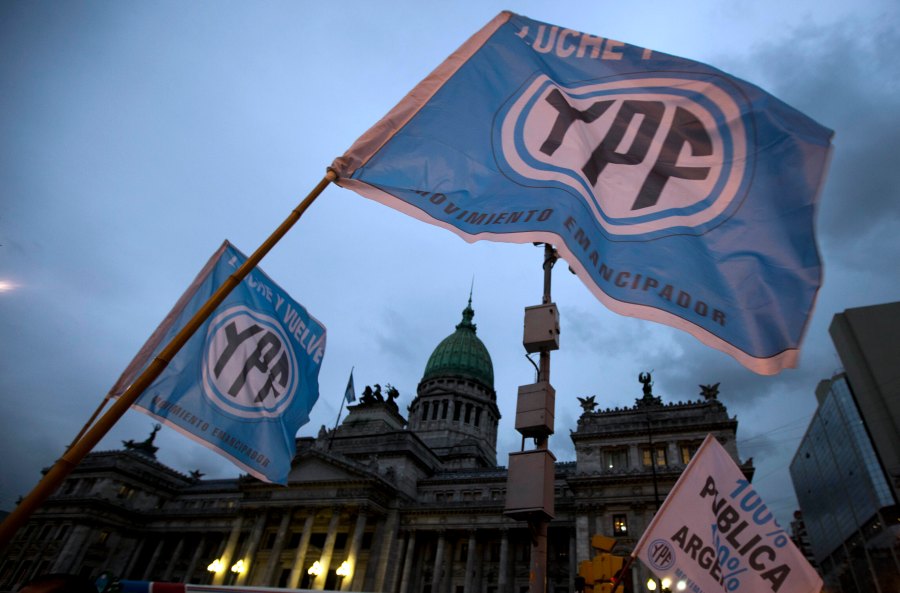BUENOS AIRES, Argentina — In a significant legal development, a U.S. judge has mandated that Argentina relinquish its 51% controlling stake in the state-run oil company YPF. This decision, announced on Monday, is part of a broader effort to enforce a $16 billion judgment against Argentina, stemming from its 2012 nationalization of the energy group. The ruling poses a fresh challenge for President Javier Milei, who has pledged to appeal the decision.
The ruling by Judge Loretta Preska of the Southern District of New York requires Argentina to transfer its shares in YPF to the Bank of New York Mellon Corp within two weeks. The decision follows a legal battle initiated by former shareholders, primarily represented by Burford Capital, which finances litigation in exchange for a share of the winnings. The plaintiffs argue that Argentina should have made a tender offer for the stakes held by minority shareholders following the nationalization.
Historical Context and Legal Implications
The nationalization of YPF in 2012 was orchestrated by then-President Cristina Fernández de Kirchner, whose administration faced criticism for exacerbating Argentina’s financial instability. The move was seen as a bold step to regain control over the country’s energy resources but also led to international legal disputes. The current ruling underscores the ongoing repercussions of that decision.
Argentina’s economic woes have persisted, with Milei inheriting a challenging fiscal landscape. His administration has struggled to bolster foreign reserves, and the loss of YPF’s controlling stake could further destabilize the economy. YPF has been a cornerstone of Argentina’s energy sector, particularly with its operations in the Vaca Muerta shale field, a critical asset for the country’s energy production.
Economic Impact and Expert Opinions
YPF’s role in Argentina’s economy cannot be overstated. The company has been instrumental in developing the Vaca Muerta field in Patagonia, which has seen a surge in crude production. In May, production reached a record 448,000 barrels per day, marking a 22.5% increase compared to the previous year. In 2024, YPF reported a net profit of nearly $2.4 billion, a significant turnaround from a $1.3 billion loss the year before.
Marcelo J. García, Director for the Americas at Horizon Engage, commented on the ruling’s implications for Milei’s administration. “This is a reminder that the country’s problems won’t vanish by merely blaming the opposition,” he stated. “Control of YPF is crucial for Milei; hence, an appeal is his only viable option.”
“More than 10 years have passed, and we Argentines continue to suffer the consequences of the worst government in Argentine history,” Milei expressed on social media platform X.
Future Prospects and Political Ramifications
The potential loss of YPF’s controlling stake could have far-reaching consequences for Argentina’s economic recovery efforts. Milei has been banking on investments in the Vaca Muerta field to address the nation’s fiscal challenges and pay down its substantial deficits. The ruling, therefore, represents a significant setback to these plans.
As the legal battle continues, the Milei administration faces mounting pressure to navigate the complex landscape of international finance and domestic economic policy. The appeal process will be closely watched, with significant implications for Argentina’s future economic stability and its relations with international investors.
Meanwhile, the broader political landscape in Argentina remains tense, with Milei’s government under scrutiny for its handling of the economy and its approach to longstanding financial obligations. The outcome of this legal dispute will likely influence Argentina’s political and economic trajectory in the coming years.
Follow ongoing developments in this story and more on Latin America and the Caribbean at AP News.

























